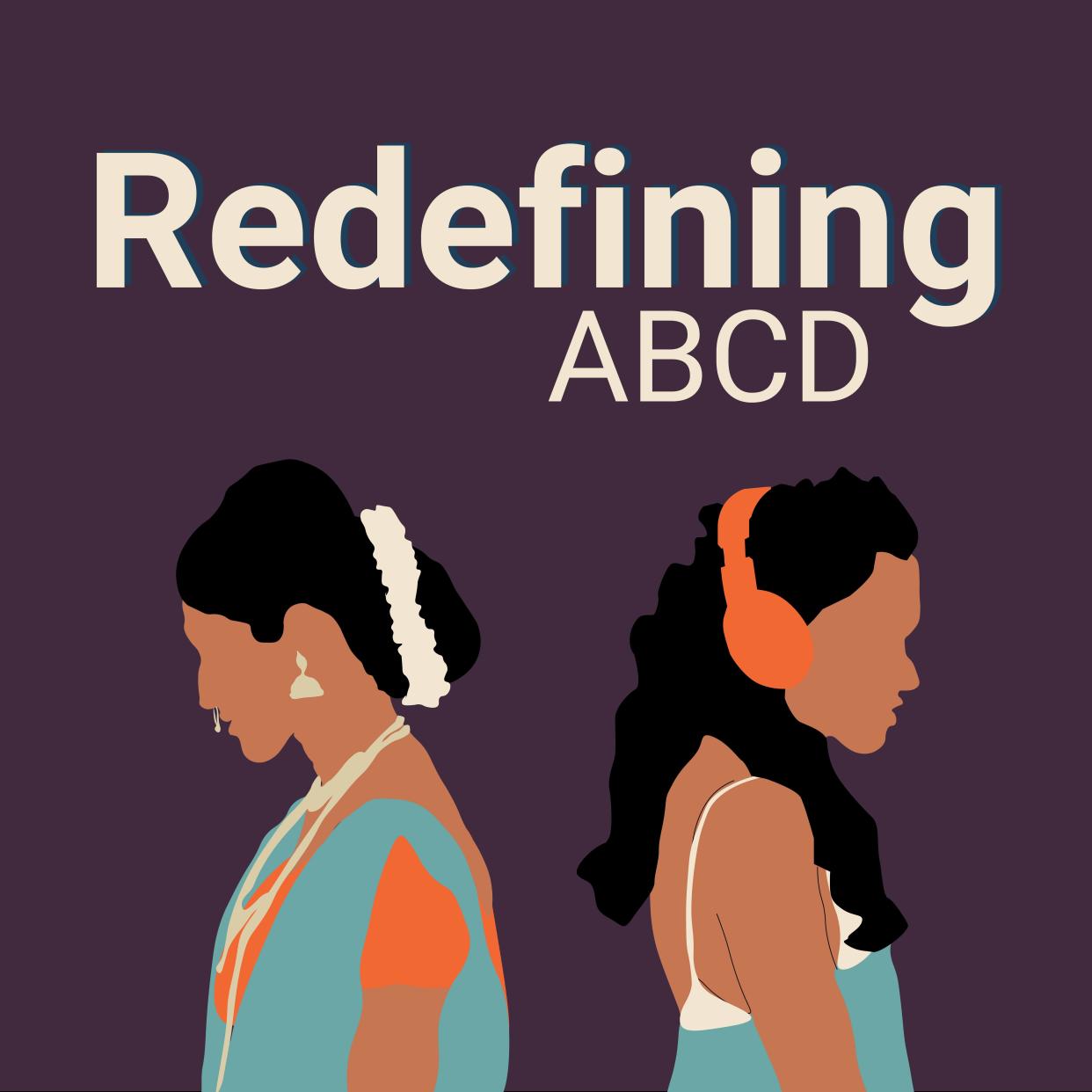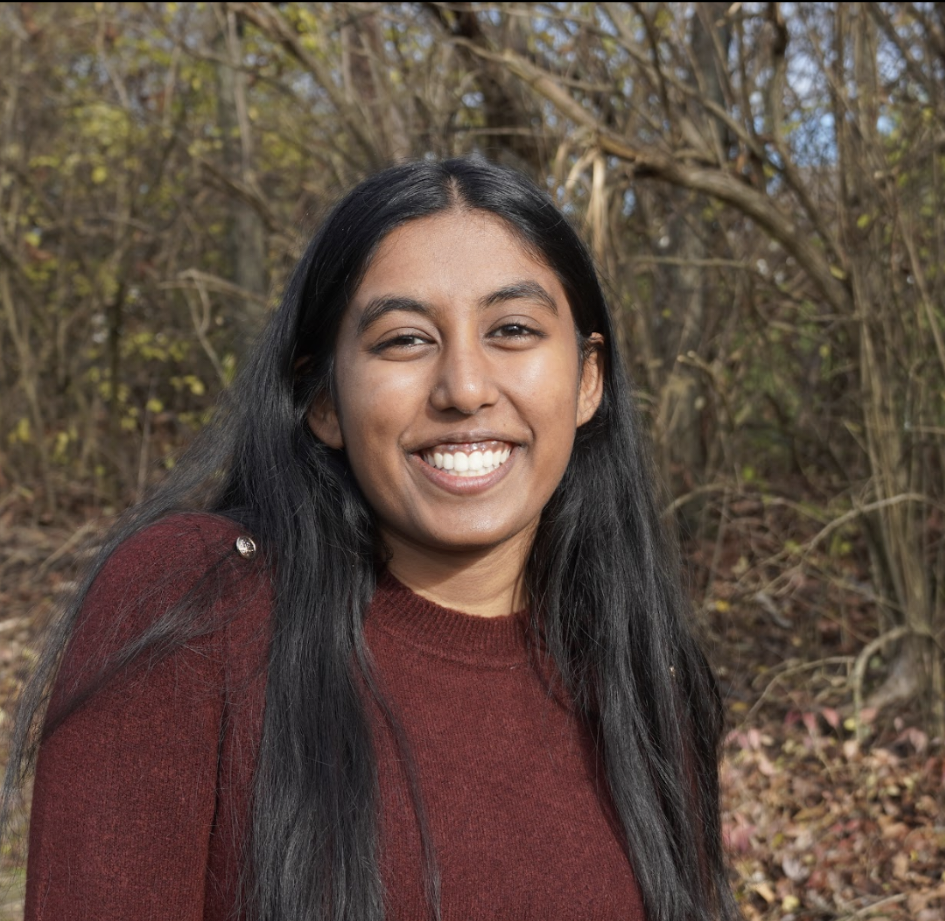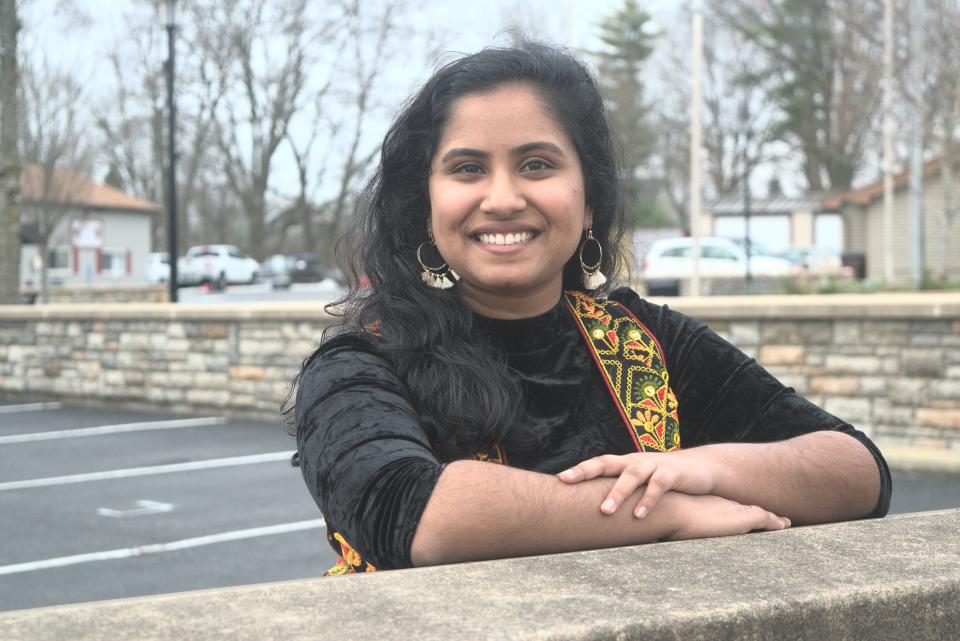Moving beyond a 'survivor mindset:' Podcast features women discussing growing up Indian American in Mason, Ohio

In early lockdown in 2020, Keerthi Sekar and Sneha Ameya were back in their hometown of Mason and searching for something to do amid the pandemic.
As first-generation Indian Americans in the largest city in southwest Ohio's Warren County, the 22-year-olds grew up talking to each other about questions of identity and culture. One day, Ameya suggested they record their conversations.
They released the first episode of their podcast, "Redefining ABCD," on Aug. 25, 2020, and have released an episode every other week since then. The podcast explores the variety of South Asian identities and how to find pride and a sense of community.
“Being Indian American, you're getting an American culture that's 200 years old and Indian culture that's 2,000 years old, and you're trying to figure out where you land or what you can resonate with," Sekar said.
Sekar and Ameya want to use the podcast to say it's okay to have your own version of this hybrid culture.
The 'culture shock' of leaving Mason
Sekar and Ameya didn't feel like they were part of a minority until they attended college.
They grew up together in the same neighborhood in Mason and attended Mason High School, Ohio's largest high school with an enrollment of 3,507 last school year, where they were part of a tight-knit Indian American community.
Sekar remembers growing up listening to Tamil music before she heard any American music. Ameya's parents hosted movie nights every Friday with other Tamil families in the neighborhood. Both women's parents are involved with the Greater Cincinnati Tamil Sangam, a language school and nonprofit that serves Tamil speakers in the tristate area.
The Asian population in Mason more than doubled from 2010 to 2020, according to U.S. Census data. Asian people make up 18.4% of the population in Mason compared to 2.5% in Cincinnati.
Sekar said there's diversity even with the Indian community in Mason. She and Ameya went to high school with other Indian American students who spoke different languages and had different cultural backgrounds.
"Even if you were just a little bit different, you felt like you were part of a diverse group, like it was all right," Sekar said.
Sekar is in her final year at the University of Cincinnati studying for a bachelor’s degree in engineering. She said she was the only woman of color in her freshman year engineering classes at UC, which was something of a shock after her science classes in Mason with other South Asian students.
"A lot of people came up to me my freshman year, and said 'you're one of the first Indian people I've ever seen' because they came from a small town in Indiana," she said.
Ameya also experienced that kind of culture shock. She graduated from UC's College of Design, Architecture, Art and Planning and now works for an architectural firm in New York City.
"I found myself explaining more little things about our culture that I don't really think twice about. For example, prioritizing school versus hanging out," she said.
That's something they explore in the first episode of "Redefining ABCD," when Ameya and Sekar discuss moving beyond the "survivor mindset" their parents adapted when they immigrated and balancing that work ethic with their own ideas about a fulfilling life.
Sekar said she wants to meet her parents' expectations and make sure they know she's succeeded, but also explore her own ideas about what success means.
"My parents have taught me ‘whatever you do, do your best.' So that really strong work ethic that the immigrant mindset has ingrained in us – we're trying to balance that work ethic in what we want to do," she said.

Pushing back against name-calling
The podcast has two recurring segments: "Larger Than Us" and "Brown Art Network."
In "Larger Than Us," Sekar and Ameya speak openly about stigmatized topics in the South Asian community in an effort to “make the uncomfortable comfortable.” They discuss family expectations, interracial relationships, mental health, dealing with burnout, questions about self-worth and success and how to be allies to other minority communities.
For the "Brown Art Network" segment of the podcast, they interview South Asian artists and professionals.
Ameya and Sekar chose the podcast's title because they want to push back against the term "ABCD," which stands for “American-Born Confused Desi.”
It’s a term that separates first-generation Indian Americans from their immigrant parents. Desi refers to a person, food, culture or thing from the Indian subcontinent. Some South Asians, especially those in younger generations, see "ABCD" as derogatory because it evokes one image of Indians growing up in America "confused" about their heritage.
In an interview with the Asian American Writer's Workshop, Indian historian Vijay Prashad said "ABCD" was created as a counter to "FOB" of "fresh off the boat," a term Indian Americans sometimes used to distance themselves from immigrants.
"There's a lot of equivalent terms for this in other minority communities. I've heard people called ‘Oreo’, and ‘Coconut,’ " Sekar said.

Ameya wants "Redefining ABCD" to unravel that kind of name-calling and bickering within the South Asian community where she's alternately been told she's not Indian enough or not American enough.
“I feel like it's important for our podcast to emphasize that it's a spectrum," she said. "You can land anywhere you like on that spectrum. It doesn't matter, we’ve stopped caring."
Ameya said the podcast has helped her appreciate the cultural immersion she had when she was younger.
When their first episodes were released, they had 20 to 30 listens per episode. Now the podcast has a consistent audience of 40 to 60 listeners.
Sekar and Ameya expected their listeners to be their own age or younger. They were surprised to find their discussion resonating with people in their late twenties and early thirties and even neighbors.
"The biggest comment that resonated with us was when an auntie, a friend of ours, came up to us and was like, 'it's really exciting that you guys are putting this out because I didn't realize that my own kid has feelings like this,'" Ameya said.
"Redefining ABCD" can be found on Apple Podcasts, Spotify and Google Podcasts.
Erin Glynn is the watchdog reporter for Butler, Warren and Clermont counties through the Report For America program. The Enquirer needs local donors to help fund her grant-funded position. If you want to support Glynn's work, you can donate to her Report For America position at this website or email her editor Carl Weiser at cweiser@enquirer.com to find out how you can help fund her work.
Do you know something she should know? Send her a note at eglynn@enquirer.com and follow her on Twitter at @ee_glynn.
This article originally appeared on Cincinnati Enquirer: Mason natives explore South Asian identities in their podcast

